To make up for this lack of spine, Hiltz apologises profusely to the ACoC homosexual contingent. Over and over.
In case anyone is labouring under the misapprehension that the issue at stake is one of Biblical truth or the definition and meaning of marriage, Hiltz sets us straight: it’s really all about “the very diverse political, cultural, social and missional contexts in which we live”. Or, to put it more plainly: “We are enlightened, they are not.”
The rest of the missive – which is not copied below – is about the usual temporal matters that are so dear to the heart of the Primate of Canada’s Christianity-Lite Anglicans: global warming, and so on.
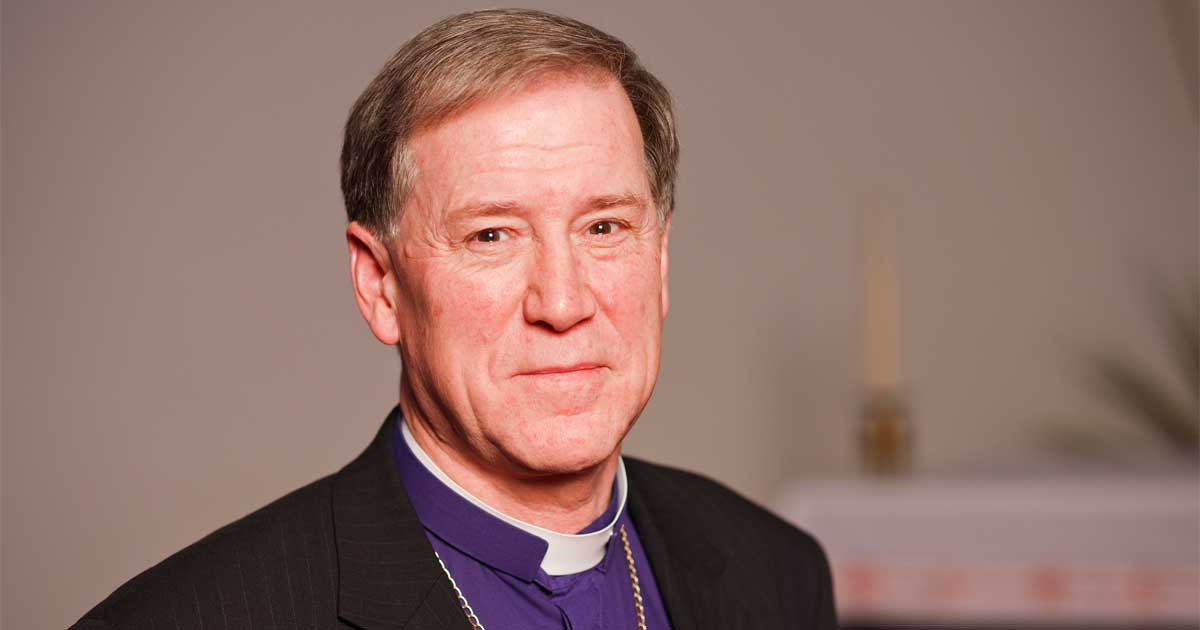 Throughout the meeting of the Primates last week, I thought much about St. Paul’s teaching about the Church being the Body of Christ in the world. It is the image at the very heart of Anglican ecclesiology. It informs the manner of our relationships in the Church local, national and global. In 165 countries we are 85 million people proclaiming the Gospel of Christ in more than 1000 languages. We are a family of autonomous Churches that understand ourselves to be “Formed by Scripture, Shaped by Worship, Ordered for Communion, and Directed by God’s Mission”. We are bound together by the long held principle of “Mutual Responsibility and Interdependence in the Body of Christ” articulated at the great Anglican Congress of 1963 in Toronto.
Throughout the meeting of the Primates last week, I thought much about St. Paul’s teaching about the Church being the Body of Christ in the world. It is the image at the very heart of Anglican ecclesiology. It informs the manner of our relationships in the Church local, national and global. In 165 countries we are 85 million people proclaiming the Gospel of Christ in more than 1000 languages. We are a family of autonomous Churches that understand ourselves to be “Formed by Scripture, Shaped by Worship, Ordered for Communion, and Directed by God’s Mission”. We are bound together by the long held principle of “Mutual Responsibility and Interdependence in the Body of Christ” articulated at the great Anglican Congress of 1963 in Toronto.
While for the most part this principle inspires our common work and witness, there are times when our capacity to abide by it is deeply challenging given the very diverse political, cultural, social and missional contexts in which we live. While being ordered for communion, we recognize that in the face of deep difference of theological conviction over certain matters of faith and doctrine the bonds of affection between us can be strained, sometimes sadly so, to the point of people speaking of a state of impaired communion.
This meeting of the Primates was particularly challenging with respect to the tending of our relationships in light of the developments in The Episcopal Church regarding the change in its Canon on Marriage making provision for the blessing of same sex marriages. I, of course, was deeply mindful of a call from General Synod 2013 for the enacting of a similar change in our own Canon, the first reading of which is scheduled for our General Synod this summer.
Since returning home, I am especially mindful of the pain the LGBTQ community within our Church is feeling. I am very sorry. I acknowledge their frustration and that of their supporters in being made to feel like the sacrificial offering on the altar of the Church’s unity. I recognize that many are angry and deeply disillusioned with the very Church in which they endeavour to live out their lives as disciples of Jesus. I know that for some it is in fact very difficult to remain within its fellowship, and that it will take a great resolve of will and courage to do so.
I apologize for the manner in which the Church has often regarded the LGBTQ community and condemned their lives with very harsh language. I call on our Church to re-affirm its commitment to rejecting anywhere in the world criminal sanctions against lesbian, gay, bisexual, trans, or queer or questioning people. I call on our Church to renew its resolve in listening to the voices and the stories of its LGBTQ members as we wrestle through conversations regarding the pastoral care we are called to provide for all people. I ask the prayers of the whole Church for the LGBTQ people in the midst of the hurt they are bearing and the hope to which they cling for the recognition and sacramental blessing of their relationships.
I am aware of sharp criticism over what some regard to have been a failure on my part to stand in solidarity with The Episcopal Church in openly rejecting the relational consequences it bears as a result of The Primates’ Meeting, or in accepting similar consequences for our own Church. Allow me to comment on each of these matters.
First, in relation to The Episcopal Church, I empathize with Presiding Bishop Michael Curry as he faces a firestorm of reaction in the United States. I recognize a need for a space of time in which that Church will respond through its National Executive Council. Notwithstanding the call of a majority of the Primates for the “consequences” named in the Communiqué, I recognize that there could well be a response from the Standing Committee of the Anglican Consultative Council. I know The Episcopal Church to be very committed to the work and witness of the Communion as a whole, and I recognize the frustration they will feel in not serving in a representative way on our Ecumenical Dialogues for example. I recognize that if The Episcopal Church is not allowed to vote on a matter of doctrine or polity that the life of the Communion is diminished. I am grateful however, that they will still have a voice in the discussions of such matters.
I have covenanted with Bishop Curry to uphold him and The Episcopal Church in my prayers, and I would ask the same of our whole Church. I was deeply impressed by the grace with which he spoke at The Primates’ Meeting. While declaring in no uncertain terms the pain he was feeling for the Church he leads, he was absolutely convinced that in good faith the General Convention acted. He recognized the strain that places on relationships throughout the Communion, and he declared his unwavering commitment – in spite of the said consequences – to walk together in the hope of “healing a legacy of hurt, rebuilding mutual trust, and restoring relationships”. He was a stellar example of leadership under pressure, of courage with grace.
Secondly in relation to our own Church. For me to have entertained any thought of accepting consequences for our own Church would have been an overstepping of my authority. To do so would have been a betrayal of my office as President of The General Synod. I was not and am not prepared to take any action that would pre-empt the outcome of our deliberations at General Synod in July. As the report “This Holy Estate” declares, “It is for the General Synod to decide the matter” in accord with the jurisdiction given it regarding “the definition of doctrine in harmony with the Solemn Declaration”. (The Declaration of Principles, 6. Jurisdiction of The General Synod [j]). I believe in the synodical process and by the ministry entrusted to me, I am obliged to uphold it.
In this entire matter our Church has faithfully honoured the call within the Resolution (C003) of General Synod 2013 for broad consultation across our Church, throughout the Communion and with our ecumenical partners. Alongside all the counsel received and noted in “This Holy Estate”, including that of the Inter Anglican Standing Commission on Unity, Faith and Order (IASCUFO) one could indeed regard the outcome of The Primates’ Meeting as another piece of information.
I ask your prayers for the members of the Council of General Synod in the task mandated to them to bring forward a resolution to the General Synod to affect a change in the Marriage Canon. I ask your prayers for the General Synod Planning Committee in the care they will take in designing a process for our consideration of this matter. I ask your prayers for all the members of General Synod that they will enter into their work well prepared and with a commitment to speak and listen respectfully and in openness to the leading of the Holy Spirit.
While the meeting of the Primates was particularly challenging with respect to relationships throughout the Communion, there was about midway through a declared unanimous continue walking together and not apart. This meeting could have been marked by calls for exclusion of the Presiding Bishop of The Episcopal Church and me. It was not. It could have been marked by walk-outs as some had anticipated. It was not. It could have been marked by ranting and raving. It was not. Instead it was marked by perseverance to remain in dialogue that was frank but respectful. It was marked by a generosity of grace and patience, with one another. It was marked too, by renewed commitments in the consideration of matters of doctrine that could be of a controversial nature, to consult broadly in the seeking of advice and counsel.
We were reminded once again of the principle named by the Windsor Continuation Group that “when the Primates speak collectively, or in a united or unanimous manner, their advice – while it is no more than advice – nevertheless needs to be received with a readiness to undertake reflection and accommodation”. While there have been calls through the years for “an enhanced authority” on the part of The Primates’ Meeting, there has been – and rightly so – a resistance to the meeting becoming a Curia for the Communion. We recognize that we are but one of The Instruments of Communion which is the only body with a Constitution outlining its objects and powers, all of which are focussed in one way or another on our relationships in the service of God’s mission in the world.
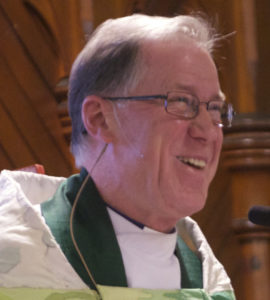 From here:
From here:

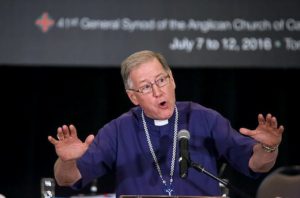 From
From 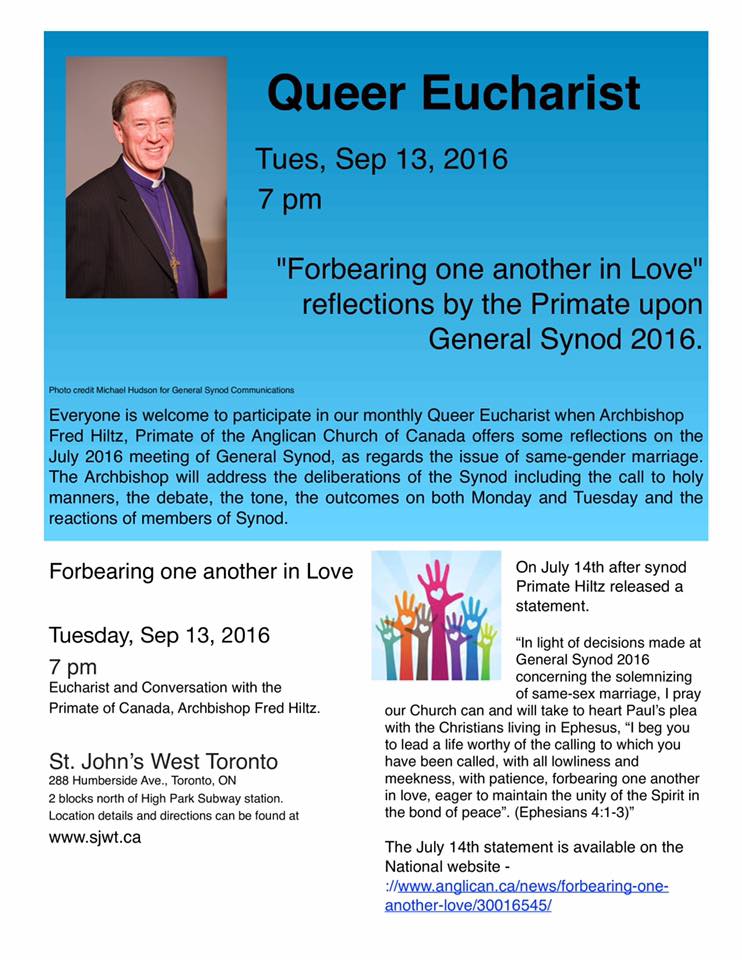
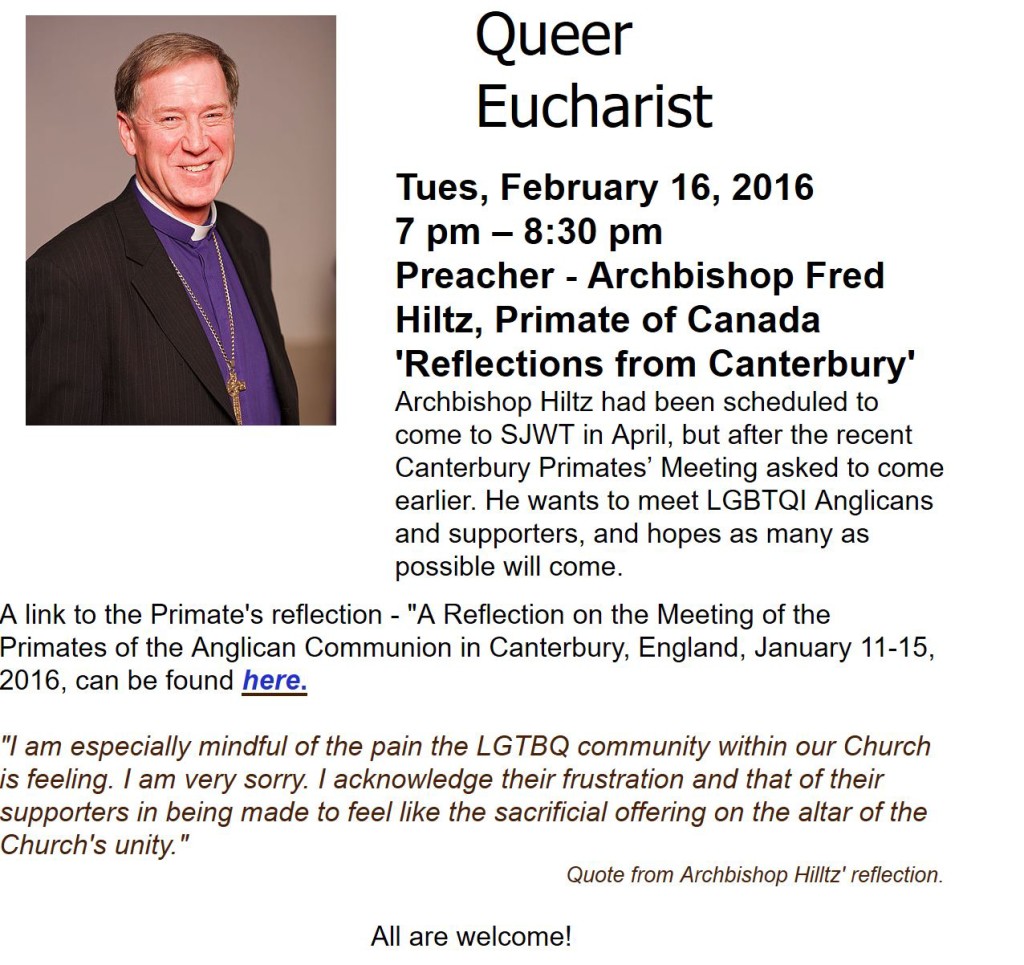
 Throughout the meeting of the Primates last week, I thought much about St. Paul’s teaching about the Church being the Body of Christ in the world. It is the image at the very heart of Anglican ecclesiology. It informs the manner of our relationships in the Church local, national and global. In 165 countries we are 85 million people proclaiming the Gospel of Christ in more than 1000 languages. We are a family of autonomous Churches that understand ourselves to be “Formed by Scripture, Shaped by Worship, Ordered for Communion, and Directed by God’s Mission”. We are bound together by the long held principle of “Mutual Responsibility and Interdependence in the Body of Christ” articulated at the great Anglican Congress of 1963 in Toronto.
Throughout the meeting of the Primates last week, I thought much about St. Paul’s teaching about the Church being the Body of Christ in the world. It is the image at the very heart of Anglican ecclesiology. It informs the manner of our relationships in the Church local, national and global. In 165 countries we are 85 million people proclaiming the Gospel of Christ in more than 1000 languages. We are a family of autonomous Churches that understand ourselves to be “Formed by Scripture, Shaped by Worship, Ordered for Communion, and Directed by God’s Mission”. We are bound together by the long held principle of “Mutual Responsibility and Interdependence in the Body of Christ” articulated at the great Anglican Congress of 1963 in Toronto.